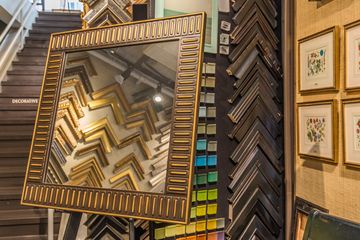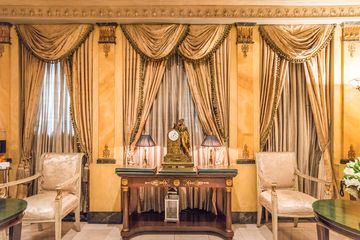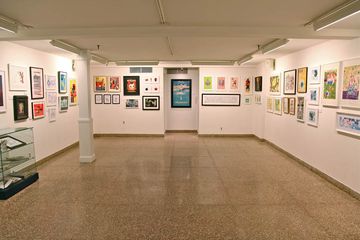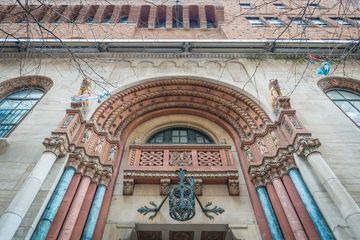The greatest treasures on the side streets often take the form of art studios, theaters, non-profits, innovative exercise spaces, and specialty lodging. I was delighted, therefore, to find all of these facilities inside the West Side YMCA. According to Wyndy Wilder Sloan, the senior director of the Y, I was not unlike numerous others who admitted to having had no idea that this extraordinary building existed on West 63rd. Sharing the fascinating history of the Y with me one morning while touring the building, Wyndy simply stated that not many people stroll down their street and those that do rarely notice what has been here since 1930. Wyndy was crowed that they have at least 5, 700 active members, 397 guest rooms, an off-Broadway theater, and an art space in addition to its vast array of fitness facilities. At the start, the Y even owned the McBurney School next door, which is still marked with a sign for "BOYS. " Wyndy informed me that the West Side Y is the largest YMCA in the country. My first stop on the tour was on the newly renovated tenth and eleventh floors to see the selection of guest rooms, which Wyndy described as "a hostel that is not a real hostel. " Wyndy shared with me that guests are frequently European travelers, mostly form the UK, with the average age between eighteen and twenty-four, but national youth groups, like the boy scouts, also take advantage of the facilities. Traipsing down the white walls marked with shapes in cheery bright colors and the names of countries from around the world, I peeked into a room and found a spotlessly clean bunk bed that had a view of Central Park. Descending down some flights, I went to the fitness floors, which were astonishing. There, I found enormous studios that offered classes from Aerobics to Zumba and everything in between. Learning that the YMCA "invented" basketball and volleyball, I gazed upon the spacious court encircled one floor up by an elevated track. When I commented on the spectacular racquetball courts, squash courts, and, particularly the original machinery still decorating the walls in the boxing room, Wyndy proudly admitted that they were available for promotional shoots. In the gym, I was met with one of the most enormous collection of ellipticals and treadmills I have ever seen. "You never have to wait for a machine, " Wyndy said. "We have every piece of equipment you can imagine, " and she went on to tell me that all Y's in the country lease their machines for three years so that they can easily update to new models. Through the clean, flower-filled women's locker room, I arrived at the magnificent pool. The space is a palace, decorated with red and yellow tiles in a stunning mosaic pattern. Wyndy explained that King Alfonso of Spain donated all the tiles to the Y as the building was being erected. Slipping inside to view the smaller pool - used more for classes and therapy sessions than for laps - was possibly even more extraordinary, with dazzling white and blue designs covering all four corners. Tearing myself away from the pools, I walked into the art annex to see a painting class in progress. Down the hall, students filled a ceramics studio that boasted two kilns. I now understood from where the cases full of colorful mugs for sale in the lobby hallway came. On my way to the "Little Theater, " which sported sloping bannisters and comfortable audience seating, I caught a glimpse of rounded traditional Spanish doors and more of the magnificent tiles in an event space named the "King Alfonso" room. After a whirlwind tour, where I saw so much original architecture, artistic craftsmanship, first-class facilities, and happy members, I was shocked that I had not heard more about the building as a lifelong New Yorker. Though I knew of its existence, I had no idea of all the valuable resources and facilities inside. Wyndy conceded that is a challenge that the West Side Y is trying to overcome: "When you're a landmark building on a side street, it's hard to maintain visibility. " It is, however, definitely worth seeking out. As Wyndy noted, "We are unique among other gyms because we are non-profit. When you sign up as a member, you know your money is going to a good cause. "



